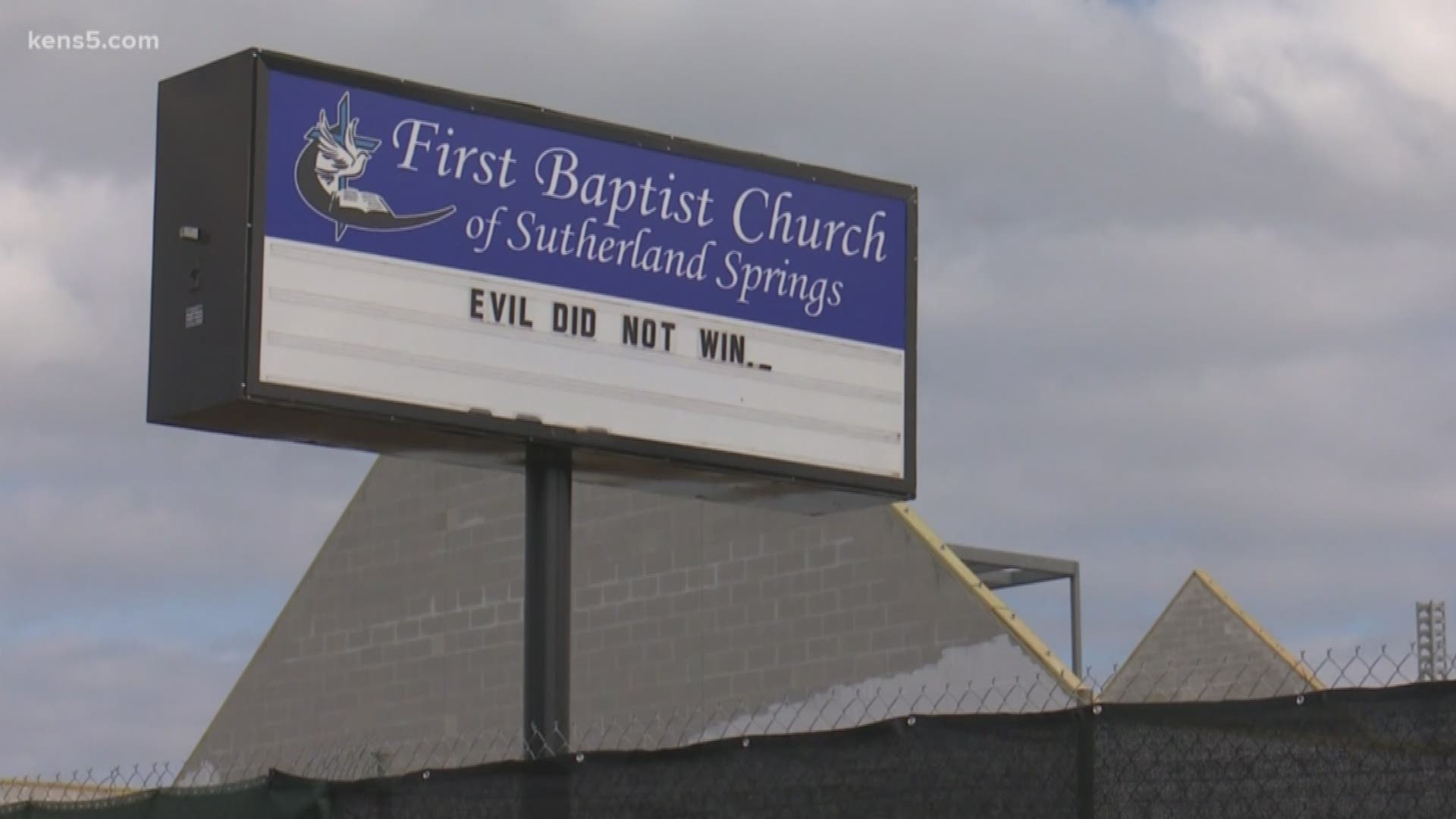WASHINGTON — The Air Force failed four times to provide authorities with information that could have prevented mass murderer Devin Kelley from buying weapons, according to a Pentagon Inspector General's report released Friday.
On Nov. 5, 2017, Kelley burst into the First Baptist Church of Sutherland Springs, Texas, and opened fire with one of those weapons, an AR-15-style assault rifle. He later killed himself.
It was the deadliest mass shooting at a church in American history, with 25 people killed plus an unborn child.
Kelly was able to buy the weapons because the Air Force had not reported his criminal activity to authorities. Service members with criminal violations cannot legally purchase weapons.
The most recent lost opportunity occurred in 2014, when the Air Force failed to notify the FBI that Kelley had been convicted at a court-martial in 2014 of assault, a crime that disqualified him from buying weapons legally. The Air Force also failed to send the FBI Kelley's fingerprints, the inspector general found. In that case, Kelley had received a one-year sentence for threatening his wife with a loaded gun and attacking her one-year-old child.
The Air Force failed three other times to notify the FBI of events that should have triggered warnings and barred Kelley from legally obtaining weapons, according to the report.


The first bungled chance occurred in June 2011 when Air Force authorities investigated Kelley for allegedly assaulting his stepchild. They collected Kelley's fingerprints but never submitted them to the FBI as required.
The second lost opportunity happened February 2012, after Kelley had been accused of beating his wife.
The third time was in June 2012, when Air Force investigators didn't inform the FBI of Kelley's video confession that he had injured his stepson.
Kelley bought weapons four times illegally because the Air Force failed to submit fingerprints to the FBI, according to the inspector general's report.


Friday's report underscores longstanding problems the armed services have had in providing civilian officials with information that should disqualify troops from buying firearms.
"It is critical that the (Department of Defense) fully implement our recommendations to correct past deficiencies and prevent future lapses in reporting," Glenn Fine, the top official for the Pentagon Inspector General, said in a statement.
Those recommendations include: background checks of recruits, revised training, and reviewing the performance of the personnel that were involved in the lapses. The Air Force agreed that the recommended changes need to be made.
The Air Force set up a task force after the Texas shooting to review its files dating to 1998. Federal authorities have been notified of all cases in which an airman should be prevented from buying a firearm, said Air Force spokesman Ann Stefanek.
"The Air Force is committed to ensuring full compliance with criminal history
reporting guidelines," Stefanek said.
In a 2017 inspector general report on the services' performance in providing fingerprints and other required reports, the inspector general found the services failed to provide 24 percent of the fingerprints and 31 percent of reports on troops involved in the criminal justice system.

